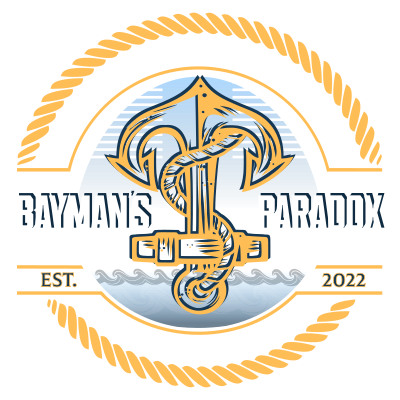Silence by Design: How Geopolitics Got Censored in Newfoundland's Wind Debate
Paris Agreement Series – Let's Begin
You don’t need riot police or gag orders to suppress dissent.
You just need enough people to say:
“Let’s not make it political.”
That one phrase became a velvet rope across Newfoundland’s wind project discourse. Moderators used it. Group members echoed it. And just like that, Newfoundland's geopolitically-driven green megaprojects was framed as merely a local land-use issue.
But it isn't. It is GLOBAL.
And Donald Trump may have accidentally saved the west coast from 165 700ft industrial wind turbines.
The Elephant Trump Wasn’t Allowed In
When Donald Trump announced the U.S. exit from the Paris Agreement in 2017—formally finalized in 2020—it sent shockwaves through the global climate finance system. Banks, hedge funds, and government-linked financial institutions began quietly withdrawing or delaying investment in net-zero schemes across the globe [1][2]. This included the kind of long-range capital flows that World Energy GH2 would ultimately rely on to fund Project nujio qonik on the Port Au Port peninsula.
But you wouldn’t know that if you followed the local opposition discourse in 2022 through 2024 (and some of 2025).
Because any time someone tried to raise the alarm that Newfoundland’s wind buildout was part of a global plan—funded, measured, and reinforced by international climate treaties—they were shut down. And not by industry lobbyists. By their own group moderators, peers, and fellow community members.
In NL’ers Against Wind Energy, Paul Pike acted as the chief gatekeeper. While publicly claiming the group was “about wind turbines, not politics,” Pike routinely removed or chastised posts that referenced the World Economic Forum, UN policy frameworks, U.S. influence, or Trudeau’s federal carbon plans [3]. The irony? Pike himself later admitted fears about foreign interference and federal overreach—but only on his terms, and only after controlling who could say what [4].
That wasn’t neutrality.
That was narrative laundering.
Manufactured Consensus and Controlled Scope
If people such as myself were not “allowed” to talk about the Paris Agreement, how were people supposed to make informed decisions about what they were actually opposing?
That was the trap.
Instead of confronting the full system—the global funding pipelines, the stakeholder capitalism model, and the UN-driven timelines—activists were channeled into narrowly scoped debates about birds, noise, and tourism. Valid concerns, but only part of the picture.
In doing so, moderators like Pike helped engineer what psychologists call a false consensus effect: the illusion that most people agree, when in reality, most people are just staying quiet [5].
And what enforced that silence wasn’t government.
It was peer pressure.
The Link to Local Paradox: Participation as Implementation
The Local Paradox paper, published by Van Assche and colleagues in 2022, explained this phenomenon precisely. Global policies like Agenda 2030, the Paris Agreement, and green industrial initiatives depend not just on federal enforcement—but on local participation [6].
In Newfoundland, that means councils who rubber-stamp permits.
It means Indigenous groups offering full support—often without full consent of the people they claim to represent.
It means moderators who decide what “unity” looks like in Facebook groups.
The Great Reset, in practice, doesn’t land with tanks or treaties. It lands as consensus.
And that consensus is built one censored comment at a time.
After the Collapse: The Silence Speaks Again
In July 2025, Owen Russell—once a loud champion of Project nujio qonik—made a strange admission. “It’s all over,” he said. “No thanks to them and geopolitics.” [7]
It was the first time in three years anyone from that camp had publicly acknowledged that geopolitics mattered.
Yet he still used it to mock opponents.
As if geopolitics didn’t count because the activists had also been right.
What got ignored entirely was the bigger truth:
That Newfoundland was never at the center of this project.
It was a staging ground.
And Trump—love him or hate him—may have pulled the plug before the turbines were even planted.
But you couldn’t say that in 2022.
You’d be silenced, flagged, or blocked.
Even as the truth unfolded in real time.
The Cost of Controlled Narratives
This is what happens when discourse is curated to protect feelings, reputations, or political comfort zones.
Power moves unchallenged.
It’s not that people didn’t care.
It’s that they weren’t allowed to connect the dots.
By the time the truth was safe to say, the damage had already been done:
- Misinformation had spread unopposed.
- Local leaders had absorbed WEF talking points without context.
- And the general public had been taught that global power shifts were “not polite to bring up.”
This series—The Paris Agreement—is here to break that silence.
We will show:
- How geopolitics drove local green agendas.
- How financial levers were pulled long before permits were issued.
- And how tone control became a weapon to protect those in power.
This isn’t just about wind.
It’s about how compliance is enforced—not by police, but by peers.
Not with fines, but with filters.
And how truth gets delayed until it’s too late to act on.
References
[1] “U.S. Formally Begins to Leave the Paris Climate Accord.” The New York Times, 2019. https://www.nytimes.com/2019/11/04/climate/us-paris-agreement.html
[2] “How Trump’s Exit from the Paris Agreement Shifted Global Climate Finance.” Brookings Institution, 2021. https://www.brookings.edu/articles/how-the-paris-exit-dampened-climate-investment/
[3] Screenshot – Paul Pike comment policing controversial posts in NL’ers Against Wind Energy (July 2023). Screenshot.
[4] Screenshot – Paul Pike expresses fear of federal takeover and nationalization of wind projects (June 2023). Screenshot.
[5] Ross, L., Greene, D., & House, P. (1977). The False Consensus Effect: An Egocentric Bias in Social Perception and Attribution Processes. Journal of Experimental Social Psychology, 13(3), 279–301.
[6] Van Assche, K., Greenwood, R., & Gruezmacher, M. (2022). The Local Paradox in Grand Policy Schemes: Lessons from Newfoundland and Labrador. Scandinavian Journal of Management, 38. https://doi.org/10.1016/j.scaman.2022.101212 (Download here)
[7] Owen Russell comment claiming Port au Port project ended “no thanks to them and geopolitics.” (July 2025). Screenshot from a Facebook Public Post (Rod Lyver).
